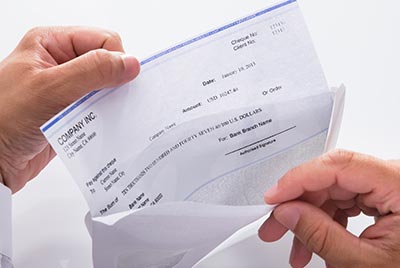What CPAs Need to Know About On-Demand Pay
By Kathleen McLeod Caminiti, Esq. and Sarah Wieselthier, Esq., Fisher Phillips LLP –
February 2, 2023

New Jersey law requires that employees be paid their wages within 10 days of the end of the pay period in which the wages were earned. Instead of waiting days, if not weeks, to receive pay for work already performed, earned wage access (EWA) — also known as on-demand pay — provides employees with the opportunity to almost immediately access wages for work they already performed in advance of their traditional pay day. EWA has been gaining in popularity over the last few years, originating in the gig economy and now becoming more commonplace in other industries like hospitality. Employees, especially the younger generation, favor EWA programs because they can provide greater financial security and flexibility. Countless surveys and studies promote the positive impact of EWA on employee recruitment and retention. As CPAs, you may be tasked with guiding clients through the creation and implementation of an EWA program or implementing an EWA program at your company.
How Does EWA Work?
EWA programs are most commonly offered through a third-party EWA provider. Essentially, the employer contracts with an EWA provider directly and employees, in turn, have access to an app or website where they can make a request for on-demand pay.
There are a variety of ways that an EWA program can be structured depending on the EWA provider. Employers have flexibility to create policies that dictate how frequently an employee can access wages prior to the pay day and what percentage or amount of pay can be accessed. The on-demand wages can be offered through direct deposit, automated clearing house (ACH) transfer or a payroll debit card/pay card.
Why Are Employers Offering EWA Programs?
Unfortunately, a large percentage of Americans are living paycheck to paycheck, and a biweekly or semi-monthly pay period does not necessarily align with deadlines to pay bills or address unanticipated expenses. Recent studies and surveys confirm that, given the current economic reality, a majority of employees favor EWA programs because they can provide greater financial security and flexibility. As a result, employers that offer EWA are experiencing greater employee retention and are finding EWA programs to be a successful recruitment and retention tool during these trying times marked with inflation and fears of recession.
Traditional Wage and Hour Compliance Is Critical
The advance payment of wages through EWA must comply with state and federal wage and hour laws, and implementation of an EWA program requires careful attention to compliance with traditional wage and hour legal requirements. New Jersey, in particular, has one of the strongest wage theft laws in the country; employees are entitled to treble damages if they are not paid their full wages.
Recordkeeping is critical to ensure that when pay is accessed prior to pay day, employees are still paid properly for all hours worked by the end of the pay period. This means ensuring that there are no fees or other charges to the employee that would reduce their pay below minimum wage or otherwise constitute an unlawful wage deduction.
Employers should partner with an EWA provider that is experienced in the area to mitigate against these wage and hour compliance issues. Employers need to make sure they understand how the early wages are paid and how the program works before entering a contract with an EWA provider. The contract should also clearly identify the EWA provider’s responsibilities and include an indemnification clause should there be a payroll error.
Tax Considerations
The concept of EWA raises many questions for employers when it comes to employer-side taxes. When is the actual date of payment for employment tax withholding, depositing and reporting purposes? Wages are considered paid when they are actually or constructively received by the employee. There is an argument that each time an employee accesses wages through an EWA program, they are in constructive receipt of the wages, and payroll taxes should be withheld and paid at that time rather than at the end of the pay period when the balance of pay is issued on the traditional pay day.
Last year, in its General Explanations of the Administration’s Fiscal Year 2023 Revenue Proposals, the Department of the Treasury issued several proposals to modify the Internal Revenue Code to address these unique tax issues presented by EWA programs. The proposal would:
- Add a definition of on-demand pay arrangements into the law
- Provide that the payroll period for EWA arrangements be treated as a weekly payroll period, even if employees have access to their wages during the week
- Clarify that on-demand pay arrangements are not loans
- Provide special payroll deposit rules for EWA arrangements
As EWA continues to be more widely used, legislation is likely on both the state and federal level to address various tax-related issues, including the interplay between on-demand pay and the constructive receipt doctrine. CPAs should follow these proposals to ensure that they are able to advise their clients or company appropriately about these significant issues.
 | Kathleen M. CaminitiKathleen McLeod Caminiti, Esq., is a partner and co-chair of the Wage and Hour and Pay Equity practice groups at Fisher Phillips LLP. More content by Kathleen M. Caminiti: |
 | Sarah WieselthierSarah Wieselthier, Esq., is of counsel at Fisher Phillips LLP. More content by Sarah Wieselthier: |